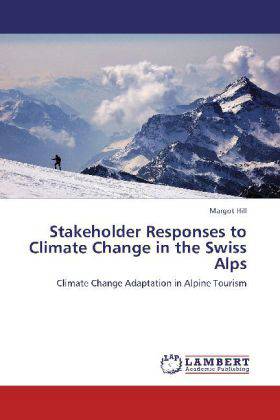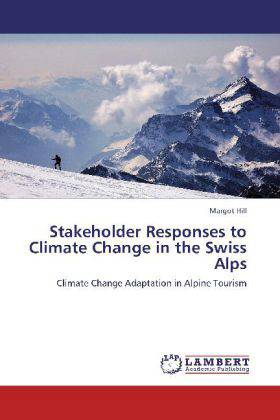
- Afhalen na 1 uur in een winkel met voorraad
- Gratis thuislevering in België vanaf € 30
- Ruim aanbod met 7 miljoen producten
- Afhalen na 1 uur in een winkel met voorraad
- Gratis thuislevering in België vanaf € 30
- Ruim aanbod met 7 miljoen producten
Zoeken
Stakeholder Responses to Climate Change in the Swiss Alps
Climate Change Adaptation in Alpine Tourism
Margot Hill
Paperback | Engels
€ 64,45
+ 128 punten
Omschrijving
The Alps will experience some of the most pronounced effects of climate change, placing socio-economic stresses on alpine communities, particularly those that rely on seasonal tourism. How stakeholders need to respond to climate change within the Alps has been well documented in the academic literature, with studies focussing on measures to minimise damage on winter ski tourism and from increased natural hazards. Concepts of adaptation measures were tested on stakeholders from the private and public sector within two case study areas within the Swiss Alps, both part of the communes of the UNESCO World Heritage Site, Jungfrau Aletsch Bietschorn. A series of semi-structured interviews took place to assess the response of stakeholders from the private and public sectors across the local, regional and national level to the increasing risks of climate change on their economic livelihoods. Adaptation strategies were found to be evenly segmented across the different sectors and levels, but to focus almost entirely on maintaining the status quo of winter tourism, while increasing the market share of summer tourism for the destination.
Specificaties
Betrokkenen
- Auteur(s):
- Uitgeverij:
Inhoud
- Aantal bladzijden:
- 108
- Taal:
- Engels
Eigenschappen
- Productcode (EAN):
- 9783846589885
- Verschijningsdatum:
- 26/03/2012
- Uitvoering:
- Paperback
- Afmetingen:
- 150 mm x 220 mm
- Gewicht:
- 166 g

Alleen bij Standaard Boekhandel
+ 128 punten op je klantenkaart van Standaard Boekhandel
Beoordelingen
We publiceren alleen reviews die voldoen aan de voorwaarden voor reviews. Bekijk onze voorwaarden voor reviews.








